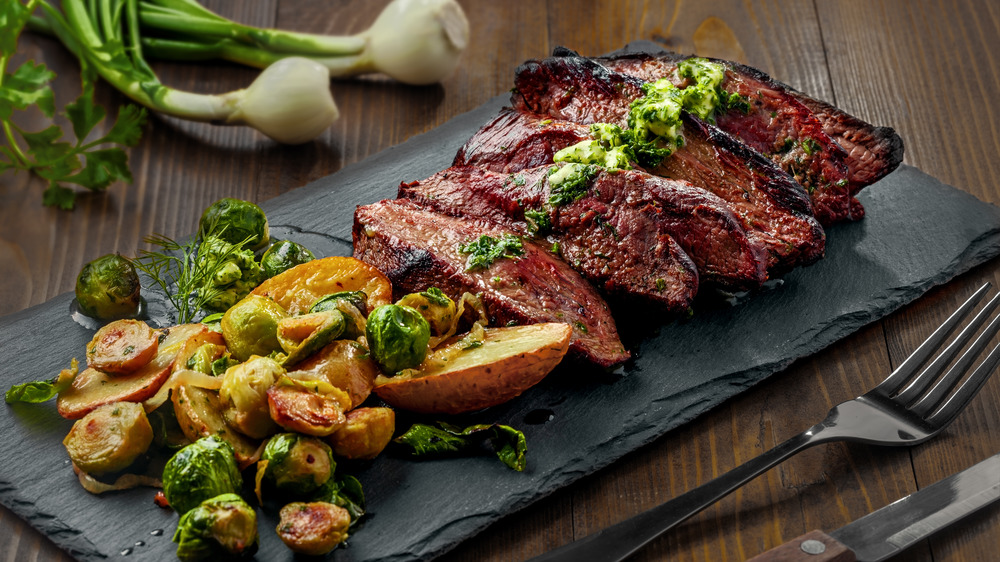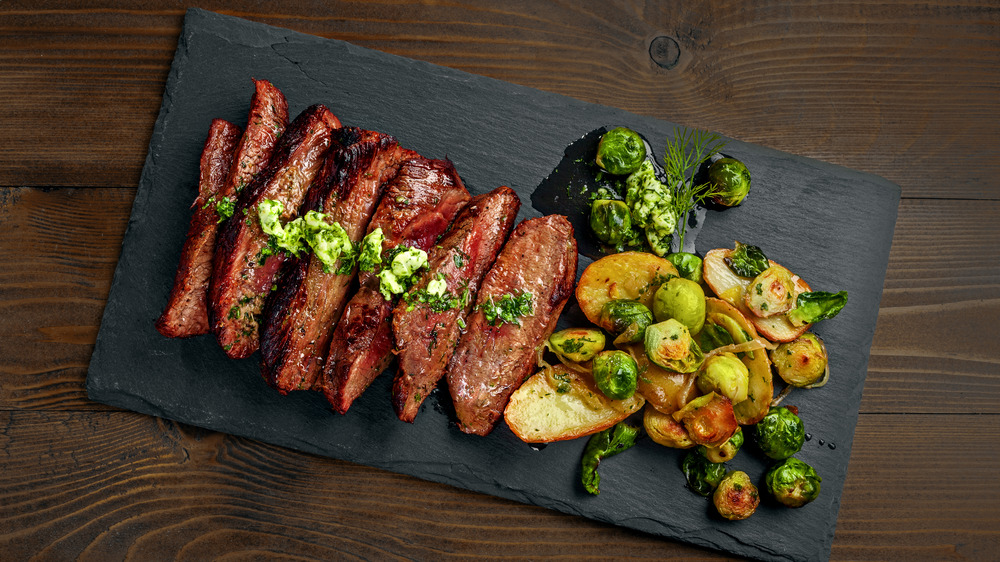Why You Should Think Twice About Ordering Hanger Steak
There are very few things that compare to a deliciously juicy cut of steak. Whether you're itching for a filet mignon, tomahawk steak, or tri-tip, indulging on a steak that has been cooked to perfection is one of life's very simple pleasures.
According to MarketWatch, the average American eats about 193 pounds of beef, pork, and chicken each year. That's about four pounds of meat every week, the article cites. While pork and chicken are both somewhat sustainable livestock to manage, beef is less so, according to Bon Appetit. Compared to its porky and clucky meaty brethren, your diet should be about six percent beef (so basically you should eat it like a treat), the article states.
Regardless, Bon Appetit states that you should still enjoy your occasional porterhouse steak, hamburger, or flank steak. But, of all the meat that can be cut and processed from the cow, the coveted hanger steak is probably the one you should be most weary of, as it could negatively impact the environment.
Hanger steaks are the least sustainable cut on the cow
A Huffpost article explains that hanger steaks are a somewhat problematic cut of beef because of its overall availability. Terry Ragasa, a butcher for Sutter Meats, tells Huffpost that carnivores should steer clear of this cut because supply for it is relatively very low. Unlike other cuts, the hanger steak, which "hangs" between the rib and loin cuts of the cow, only comes one per cow. That's right — you can only get one hanger steak per cow.
Because of this, My Recipes cites that it is a cut of meat that is painfully difficult to find at local supermarkets. Jon Elwood, of beef delivery service Ranchly, explains to My Recipes that for a grocer to stock 10 hanger steaks, they would need to buy 10 cows. So, while you may find multiples of other cuts like sirloins, there will only be the one hanger steak. Ragasa tells Huffpost that when weighed against all the meat that can come from an 800-pound animal, it's not the most sustainable way to go about retrieving meat from a cow.

